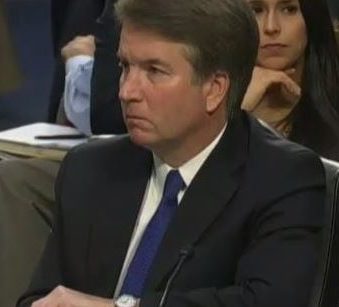Blog Post
Games Congress Plays: The Judge Kavanuagh Edition
Related Issues


When Judge Gorsuch was nominated for the Supreme Court, the Democrats had the best chance of restoring a cooperative climate to Congress. They had the opportunity to play the best game-theoretic strategy for inducing cooperation from the Republicans: tit-for-tat.
In 2016, the Republicans defected from the long-standing Senate norms of giving advice and consent to presidential nominations to the Supreme Court. They refused to consider President Obama’s nominee, the centrist Judge Garland. The Democrats should have responded with an all-out opposition in Congress, on the streets and in the courts. This would have been the appropriate response in the stark beauty of a repeated Prisoner’s Dilemma Game. Though this is no game.
In the Prisoner’s Dilemma, the police have apprehended two suspects of a major crime, but they only have enough evidence to convict for a minor violation. The prisoners are separated and each is offered the same deal. If they confess to the major crime and implicate their colleague, they will go free while their colleague gets a stiff sentence.
Here are the payoffs for each prisoner depending on what each prisoner does:
If the first prisoner confesses (defects from the partner’s wishes) and Prisoner 2 also confesses (defects), then Prisoner 1 gets a nine-year sentence and Prisoner 2 also gets a nine-year sentence.
However, if Prisoner 1 confesses (defects) but Prisoner 2 does not defect (cooperates with his colleague) then Prisoner 1 gets no punishment while Prisoner 2 gets 10 years in jail.
On the other hand, if Prisoner 1 does not confess (cooperates with the partner in crime) and Prisoner 2 confesses, then Prisoner 1 gets 10 years and Prisoner 2 gets off free.
Finally, if Prisoner 1 does not confess (cooperates with the other prisoner) and Prisoner 2 also does not confess (cooperates with the first prisoner), then Prisoner 1 gets a two-year sentence and Prisoner 2 gets a two-year sentence.
The best outcome for each prisoner occurs if they cooperate with each other by refusing to confess to the police. However, there is a temptation to defect and confess in the hope of getting off scot-free. In a single run of the Prisoner’s Dilemma Game, it is extraordinarily difficult to get cooperation between the prisoners. However, if the game is run a number of times, and the two participants are told the outcome on each game, it is possible to achieve a long run cooperative equilibrium as the moves each player makes is a signal to the other on how to respond to achieve a cooperative outcome. This is the situation for legislators in Congress.
In the 1980s, Robert Axelrod ran a number of tournaments between various strategies of competition and cooperation to see if cooperation could evolve over series of 200 Prisoner’s Dilemma Games. The question Axelrod posed was: if this game were to be run a large number of times what mix of behaviors would result in a long run streak of cooperative outcomes. The best strategy was developed by Anatol Rapoport and is called the tit-for-tat strategy. It says, don’t be the first to defect (confess), if your opponent defects, then defect on the next turn. If your opponent then returns to cooperative behavior then cooperate on your next turn, if the opponent defects then do so too. The strategy has elements of punitiveness for defection and of forgiveness for cooperation.
Post-Garland, the Democrats were faced with an opponent who defected. The next play in the tit-for-tat game would have been for the Democrats to defect to and use every ounce of energy to block Judge Gorsuch. This did not happen. There still remained some respect for Trump and the replacement of one right-wing justice, Scalia, with a similar right-wing justice, Gorsuch, was not viewed as such a big deal.
We should, however, fight hard now to oppose Judge Kavanaugh. Although the tit-for-tat strategy is best, the tit-for-two-tats strategy is also conducive to extracting cooperation in future interactions between Democrats and Republicans. This will be a lesson to the Republicans. They are in some disarray over the president’s recent legal difficulties and an election is approaching. It may not get them back on the cooperative track, but it has a good chance of doing so.
Of course, the accuracy of this analysis depends on being in a world in which both parties prefer win-win over lose-lose. I am not sure we live in this kind of world anymore.
Martin G. Evans, a Cambridge resident, is a freelance writer on managerial and political issues. He is formerly a business school professor at the Rotman School of Management at the University of Toronto and has also taught at the London Business School, George Mason University, Rutgers University and the Harvard School of Public Health. In 2001, Evans was co-recipient of the Academy of Management Distinguished Educator Award. This column was first published by Wicked Local.